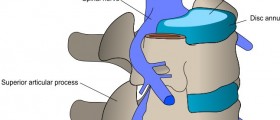Health Hero
1626 posts
Hello.
There are several possible explanations for your symptoms, some of which are related to the surgical procedure itself, while others may be related to other underlying conditions. Here are a few possibilities:
1. Inner ear disturbance: The symptoms you are experiencing, such as dizziness and nausea, are often associated with inner ear disturbances. It's possible that the surgical procedure may have affected your inner ear, causing these symptoms.
2. Changes in spinal alignment: After spinal fusion surgery, there is often a change in the alignment of the spine. This can cause a shift in the center of gravity and affect your balance and sense of spatial orientation, leading to motion sickness-like symptoms.
3. Vestibular migraine: Vestibular migraine is a type of migraine that affects the vestibular system, which is responsible for balance and spatial orientation. Symptoms include dizziness, nausea, and motion sickness-like symptoms.
4. Medications: It's possible that the medications you are taking for pain or other reasons may be contributing to your symptoms. Some medications can cause dizziness, nausea, and other symptoms.
5. Anxiety: Anxiety and stress can also cause symptoms like dizziness, nausea, and motion sickness-like symptoms.
You can reach out to a specialist, such as a neurologist or an ear, nose, and throat (ENT) doctor, who can help determine the underlying cause of your symptoms and recommend the appropriate treatment.
There are several possible explanations for your symptoms, some of which are related to the surgical procedure itself, while others may be related to other underlying conditions. Here are a few possibilities:
1. Inner ear disturbance: The symptoms you are experiencing, such as dizziness and nausea, are often associated with inner ear disturbances. It's possible that the surgical procedure may have affected your inner ear, causing these symptoms.
2. Changes in spinal alignment: After spinal fusion surgery, there is often a change in the alignment of the spine. This can cause a shift in the center of gravity and affect your balance and sense of spatial orientation, leading to motion sickness-like symptoms.
3. Vestibular migraine: Vestibular migraine is a type of migraine that affects the vestibular system, which is responsible for balance and spatial orientation. Symptoms include dizziness, nausea, and motion sickness-like symptoms.
4. Medications: It's possible that the medications you are taking for pain or other reasons may be contributing to your symptoms. Some medications can cause dizziness, nausea, and other symptoms.
5. Anxiety: Anxiety and stress can also cause symptoms like dizziness, nausea, and motion sickness-like symptoms.
You can reach out to a specialist, such as a neurologist or an ear, nose, and throat (ENT) doctor, who can help determine the underlying cause of your symptoms and recommend the appropriate treatment.
Loading...














